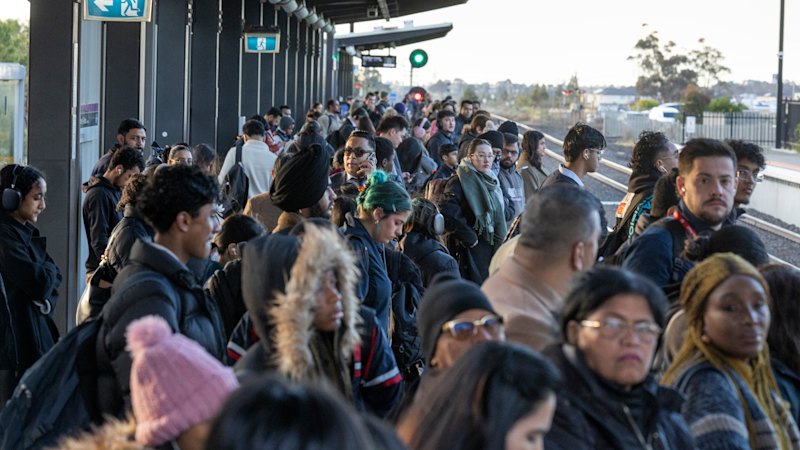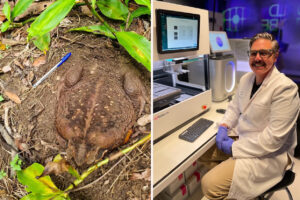
Plans to electrify the Melton and Wyndham Vale lines in Melbourne have been postponed until at least the 2030s, leaving commuters in some of the city’s fastest-growing suburbs facing extended wait times for modern, high-capacity trains. The state government is now exploring the use of battery-powered trains on the Wyndham Vale line, which services rapidly expanding areas such as Tarneit and Truganina, rather than committing to more costly electrification.
During the West of Melbourne Summit, Jeroen Weimar, the Department of Transport and Planning’s secretary, stated that the electrification of the Melton line would commence only after the completion of the $4.1 billion Sunshine station redevelopment, scheduled for 2030. This delay raises concerns for residents in the area, which is projected to accommodate 1.8 million people by 2050, according to government forecasts.
The Victorian government had initially promised to electrify these lines during the 2018 election campaign, but ongoing infrastructure projects have pushed timelines further into the future. Weimar emphasized the importance of prioritizing the Sunshine station project before proceeding with the Melton line electrification. He articulated a clear sequence of priorities: “Get Sunshine done, get Melton done, then continue to expand capacity down to Wyndham Vale.”
The West of Melbourne Economic Development Alliance (WoMEDA) has identified the need for improved transport in the region, asserting that the electrification of the Melton and Wyndham Vale lines is essential for transitioning from regional V/Line trains to more efficient metro services. Yet, WoMEDA’s recent report indicates an uncertain delivery date for the Melton project, with the Wyndham Vale line indefinitely postponed.
In the interim, the ongoing upgrade of platforms on the Melton line aims to accommodate longer nine-car trains instead of the current six-car configuration. Jonathan Spear, chief executive of Infrastructure Victoria, noted that this extension would provide some relief before more extensive capacity expansions are needed. “Electrification to Melton is something that our model shows there is super-high demand for, and it’s a logical thing to do once that work around Sunshine station is completed,” he said.
The Allan government faces challenges in balancing its budget amidst a significant infrastructure program, which includes high-cost projects like the $26 billion North East Link and the $34.5 billion Suburban Rail Loop East, both located in Melbourne’s eastern suburbs. Meanwhile, Melton City Council continues to advocate for upgrades to the Western Freeway, which has received $1 billion in funding from the federal government but lacks a clear start date.
Residents express their frustration over the congested freeway. Brad Bonnici, a Brookfield resident, left his job as a lift mechanic due to the lengthy commutes. He described the traffic conditions as “horrendous” regardless of departure time, emphasizing the urgent need for substantial upgrades. “We’re expecting a massive upgrade, not just a Band-Aid fix,” Bonnici stated.
In late 2022, both state and federal governments committed $10 million to develop a business case for enhancing the Western Freeway, which includes adding lanes and constructing new interchanges and overpasses. Premier Jacinta Allan assured attendees at the summit that the project had not been put on hold, although she refrained from providing a specific timeline for its commencement. “The start date is dictated by having in place the planning work, environmental approvals,” she clarified.
Opposition Leader Brad Battin criticized the Labor government for its failure to deliver on its promises regarding the electrification of the Melton and Wyndham Vale lines. He asserted that the Coalition plans to present a costed transport policy ahead of the next election. “What we say, we’ll deliver. It will be costed, and you will get it,” he said, expressing concern over the current government’s track record.
The Chief Executive of Melton City Council, Roslyn Wai, expressed hope that the Sunshine Superhub works would pave the way for the Metro extension to Melton. However, she shared her anxiety about the timeline for essential projects. “We know it’s coming, it’s just not coming quick enough,” Wai remarked, highlighting a sense of frustration among residents.
Sunshine is positioned as a potential second central business district for Melbourne, with the redevelopment of its station critical for leveraging the upcoming Melbourne Airport Rail line, expected to be operational in the 2030s. WoMEDA is advocating for the expedited delivery of this airport train link, emphasizing its importance for regional development.
Brimbank City Council’s Chief Executive, Fiona Blair, noted that uncertainty regarding the Sunshine station redevelopment is hindering the area’s growth as a hub for employment and housing. “It’s really important that it’s not just something that people go through on a train, but people actually stop there,” she said, stressing the need for clarity on investment timelines to attract developers.
As the community awaits updates on these critical infrastructure projects, the demand for improved rail and road transport in Melbourne’s western suburbs remains a pressing concern.







